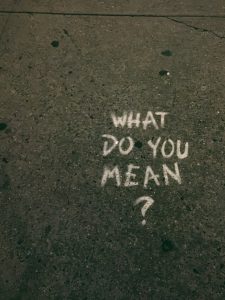 The term “Covid Secure” seems to be a prominent feature of life for Yoga Teacher running their own classes – in their own space or a rented one – these days.
The term “Covid Secure” seems to be a prominent feature of life for Yoga Teacher running their own classes – in their own space or a rented one – these days.
What does it mean?
Well, first to say its not defined in law – its a guidance term from HM Government.
The Health and Safety executive say in Working safely during the coronavirus (COVID-19) outbreak, “This guidance is for employers, but workers and the self-employed may also find it useful. It’s designed to help you make your work and workplace safe (be COVID-secure). It’ll help you to manage the risk associated with re-starting or running your business during the outbreak.”
ROSPA, Royal Society for Prevention of Accidents say “The Government has released details of how certain businesses can start to operate from physical premises following lockdown, and how employees who can’t work from home can be facilitated to return to work. Called COVID-19 Secure, the guidelines are designed to ensure businesses can operate during the outbreak, while keeping employees safe from transmission of the virus.”
Back in July I wrote about Making Sense of Outdoor Teaching Rules – How Many Can You Teach? and I touched on Covid secure then:
Covid Secure Guidance
So what exactly is Covid Secure? What do we have to do?
A search leads to: Working safely during coronavirus which is subtitled “Find out how to make your workplace COVID-secure”. So far so good – it then lists 14 sector guides including:
“Providers of grassroots sport and gym/leisure facilities” – which we’ve seen already – its the 9th July guidelines for reopening indoors on 25 July. As I said when I wrote about them last week “The root of the confusion is that as far as I can tell businesses cannot reopen if they are not Covid Secure, and equally Covid Secure means following the relevant guidelines. It seems circular.”
The Health and Safety Executive have written about “Make your workplace COVID-secure” – this is more thinking about making employees than the public safe, but its contents will be familiar – risk assessments, sanitisation, social distancing.
So in summary as far as I can see you can’t open any business – at least not to staff and visitors – if you are not Covid Secure. The very act of assessing risks and making mitigation policies potentially makes you “Covid Secure”, and ipso facto aligned with “Businesses and venues following COVID-19 Secure guidelines can host larger groups provided they comply with the law.”
So put simply Covid secure is complying with both general H&S responsibilities, which ipso facto will include Coronavirus, and secondly with the Governments guidance for specific sectors and specific sets of premises.
Where Do Responsibilities Lie?
A common question is who is responsible for H&S / Guidance compliance? The Yoga Teacher? The owner of premises? Sometimes these will be one and the same, eg owner operators of studios, but often it will be different, eg Yoga Teachers renting space in a studio or community facility.
The answer is it lies with both parties.
A landlord – anyone who rents facilities out – has a H&S responsibility, including Coronavirus, ergo they have to be Covid Secure.
However any Self Employed person – in this context a peripatetic Yoga Teacher – has also to ensure that they are working in compliance with H&S including Coronavirus guidance, ergo they will also be Covid secure.
So where you hire premises from or to someone else its a dual responsibility. if you are a peripatetic Yoga Teacher please don’t fall into the trap of thinking this is just a landlord responsibility.
The Relevance of Covid Secure?
Well, this is probably two fold.
First it enables you to make a public statement about the safety of your classes. And its worth remembering that public confidence is an important issue – many students are nervous about returning to face to face classes.
Secondly, just today (9th September 2020) in the context of the “rule of six” introduced, the Government refer to Covid Secure, eg:
“From Monday 14 September, you must not meet with people from other households socially in groups of more than 6. This will apply indoors and outdoors, including in private homes. This change will simplify and clarify the rules on social gatherings, so they are easier to understand and easier for the police to enforce. There will be a limited number of exemptions. COVID-19 Secure venues, such as places of worship, restaurants and hospitality venues, can still host larger numbers in total but groups of up to 6 must not mix or form larger groups. This rule will not apply to individual households or support bubbles of more than 6 who will still be able to gather together. Education and work settings are unaffected, and organised team sports will still be able to proceed, as will weddings and funerals up to 30. From Monday, this limit will be enforceable in law.” (emphasis mine)
Source – Coronavirus (COVID-19): What has changed – 9 September
Of course the Government muddy the waters a bit here – every public venue must, in my view, be Covid Secure as a condition of opening, so the reference is almost superfluous – although it does emphasise the point.
I hope this helps to stem confusion on the term.
Photo by Jon Tyson on Unsplash

